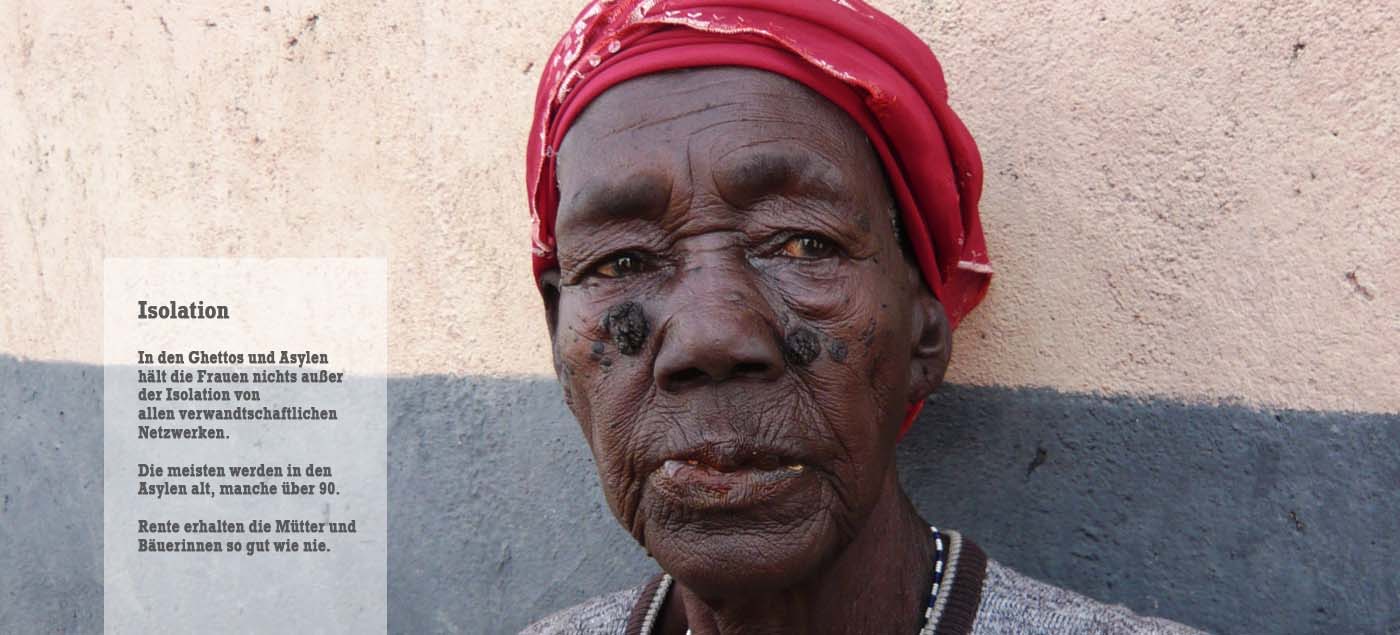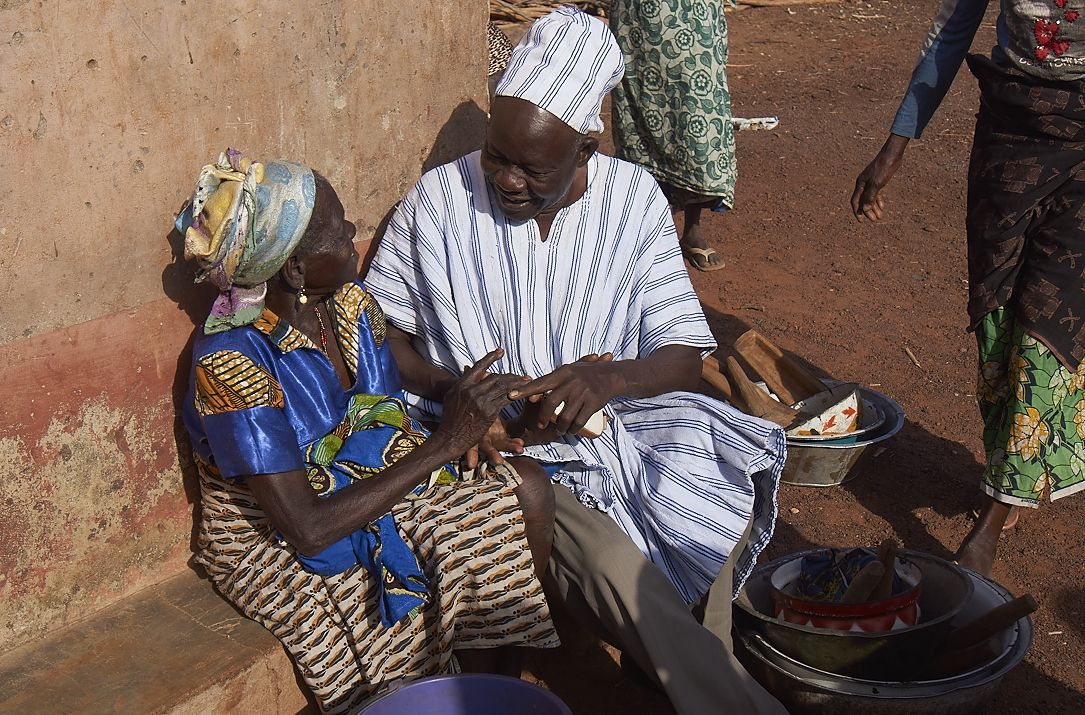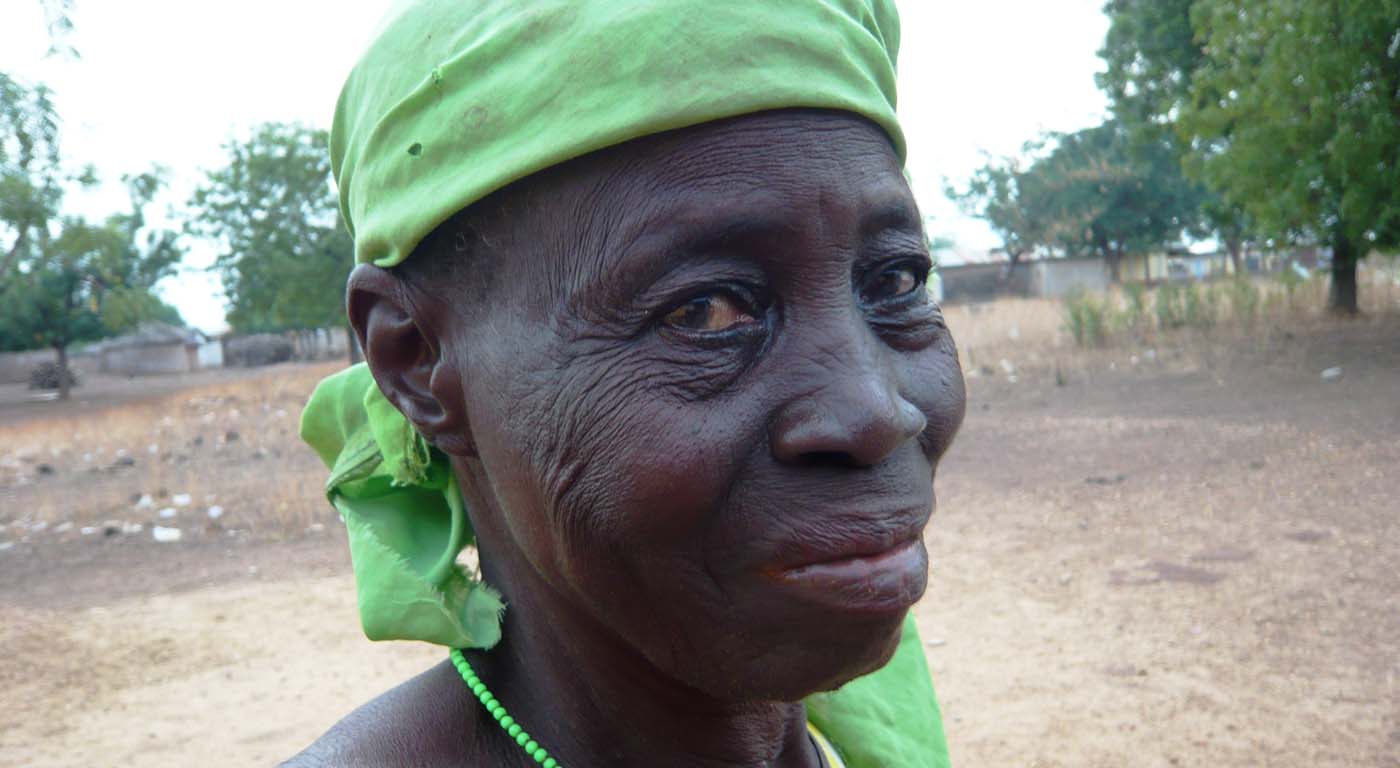Resettlement remains one of the most promising options in the life of an outcast: To reconcile with their families and live in peace the midst of grandchildren and grand-grandchildren is most often their greatest wish.
Nonetheless, the harsh reality is equally aware to them: That they are endangered at home. While many visit their homes for special occasions like funerals, they prefer to leave again after some days or weeks to avoid being accused once someone else dies.
Simon Ngota has started to negotiate resettlements more than 20 years ago. Since that time he safeguarded more than 400 women back to their homes. The strategy is as follows:
1. Explaining the resettlement process to the person, who wants to go back. Good signs for succesful resettlements are visits from relatives and regular home-visits of the outcasts.
2. Visiting the village together with the outcast to gain intelligence on the situation on the ground.
3. Negotiating with elders and chiefs and family members and most often with the accusers. If the general safety and support of the person is granted, she can return.
4. Moving the belongings and the person with a car back to their homestead.
5. Follow-up-visits ensure the wellbeing of the person and demonstrate the will of outsiders to protect the person in the long run. As Simon Ngota has resettled women all around the area, he usually combines visits at several spots while organizing the resettlement of another person.
As in a number of cases women were accused again and returned to the camps, sometimes maltreated again, most women are aware of that risk and consciously make their choice once they have it. Some decline to go back, as they feel better in the sanctuaries and are not eager to go back home. No one is bribed or forced into resettlement.
Some explain their wish, to be resettled in a town nearby. If they can take car of themselves, the Witch-hunt Victims Empowerment Project offers a startup donation (for petty-trade and a hut) and regulary visits the person.
This strategy relies on the diplomatic experience of skilled Ghanaian personell. It should not be tested without profession of language and intimate knowledge of local customs. Nonetheless, the strategy seems viable as gold-standard for many other African contexts, where witchcraft-accusations are hot-tempered and where reconciliation is sometimes even already a tradition.
This post is also available in: German




